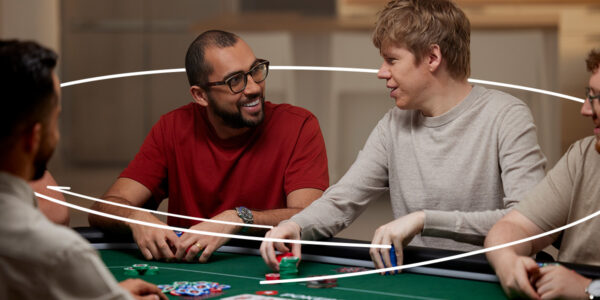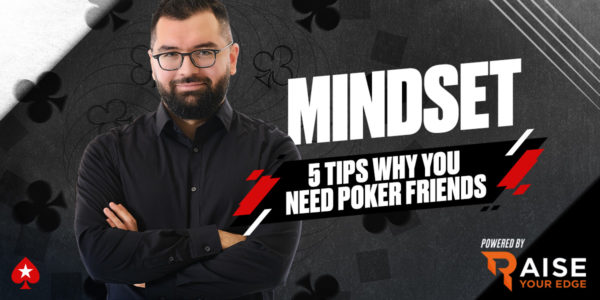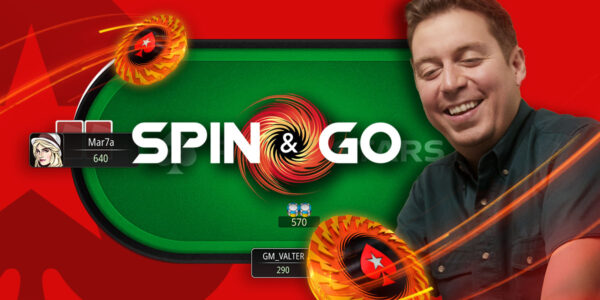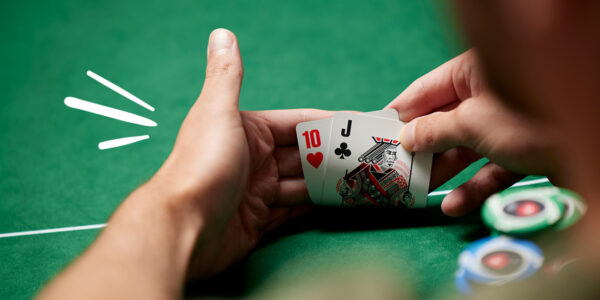8 Tips on Surviving Bad Runs in Poker
First thing’s first. A bad run is just a random fluctuation in the way the cards fall. There is no rule to suggest that because you have been running bad that your next session is any more likely than usual to be negative.
It sure can feel like losing is inevitable during these periods however, so how do we minimise damage and play our best throughout lousy stretches of luck? Here are some tips.
1. Play Less, Study More
One way of diluting the negative energy flowing through your body is to space out your volume while also strengthening your game.
Some players talk about ‘grinding through it’ or ‘playing so many hands that variance is no longer a factor’, but what is likely to happen when you force extra volume during a bad stretch? Your game will be much worse than normal. One way to increase your variance is to play with a lower win-rate than you are capable of.
2. Fold When In Doubt
Folding in close spots instead of calling or shoving is a great way to reduce variance and calm the seas of your poker journey.
If the spot is close, then it will make little difference to your EV (expected value) whether you invest money or not, but a great deal of difference to your volatility. Even making microscopically bad folds in order to preserve your mindset for the rest of the session is not a bad strategy, so long as this does not spill over into risk aversion at the cost of meaningful EV.


3. Think About Your ‘Two Graphs’
The ‘two graphs’ exercise is a thought experiment I use on private students when they are running bad. It imagines their current downswing as a little blip in the graph of their poker year.
Imagine two graphs side by side that portray your possible annual results:
The first graph is the one in which your downswings are made worse by tilt and short-term frustration, and each downward blip is twice as bad as it needs to be.
The second graph is the one where they held it together when running bad and limited the extent of each downswing to its natural duration and magnitude.
Graph 2 is similar in shape to graph 1 but twice as winning. Which graph will you choose?
4. Play 50 Minute Sessions
If you’re a cash player, or you grind Spin & Go or Sit & Go’s, then limiting your poker session for the day to 50 minutes can lead to playing to your best ability in a shorter window.
Not only does 50 minutes represent the timeframe of maximum concentration, but also, shortening sessions will cut out the possibility of long sessions where you chase losses.
When we play for too long, our level of decision-making deteriorates. But in a parallel way, so does our vigilance for monitoring our performance. This leads to players playing their C or D game for a long time, whilst believing they are playing A or B game. The monitoring level is also C or D, so it cannot tell the difference.
5. Keep the Stress of Poker in its Own Box
One pitfall to stay well clear of in poker is letting bad runs impact your mood in real life.
You need to be feeling good outside of poker to survive the turbulence within the game. A long-term student was telling me the other day that when he has had a bad day at the tables, his girlfriend will come home from work and know immediately. He will be quiet and snappy, inadvertently taking out the day’s poker frustrations on his real-life environment.
To avoid this, try exercise and meditation. Set strict rules about leaving poker behind when its allotted time for the day has elapsed. Poker should stay in a box of its own. Its toxic emotion should only be felt while enduring terrible luck, and not three hours later. Remember that what goes down must come up eventually. You will not be running bad forever so don’t go around acting as if you will be.
6. Don’t Check Your Bankroll
Incessant checking of your bankroll is a dreadful habit to develop. It teaches you to care about the outcome of every hand. Many losing hands are played well and winning hands are played badly. The game does not provide reliable feedback in the form of short-term results like we are used to outside of poker.
Checking your bankroll is an addictive drug. The need to know the monetary damage becomes all-consuming and focus is completely removed from getting better at the game and making the best choices. One of the most liberating things in poker is to neither know nor care how much you are up or down. Set a rule and look only at the end of each week. It will bring you tremendous piece of mind.
7. Do Not Chop and Change Games
In my book Poker Therapy (which you can find at carrotcorner.com) I talk about some of the character roadblocks that prevent people from realising their poker ambition. One of these is the curse of fickleness.
Fickle players deal with adversity by running away to a different format of the game or perhaps a different game altogether. I can think of so many players who have suddenly taken up tournaments or Omaha when running bad.
What are your chances of making all your money back at a game you barely know? Far lower than they are if you stick to what you’re good at and wait for the winds to change direction.
8. Express Anger, But Not Through Your Play
At a poker retreat I ran, some of my students were surprised to see how emotional I could get during a session.
They expected me to be some sort of calm guru who never bat an eyelid at getting coolered for two stacks. What I explained to them was that the reason I might shout or call an opponent some obscenity out loud is not because I am losing control, but so that I don’t lose control.
There are times when the game will make you mad. It is much better to express this outwardly and then move on than to sit inwardly harbouring anger which you then quietly but fatally take out by making a terrible decision in five minutes’ time.
Final Advice
You will run good again some day. That elusive heater is somewhere in the not too distant future so make sure you still have the bankroll to capitalize on it!












